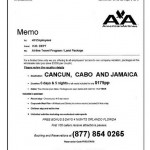Before mortgage rates start inching up, you might want to consider refinancing But first, get ahead of the banker, or broker, and figure out if refinancing is worth it for you.
Refinancing is great only if the fees you pay to get the new mortgage don’t exceed the amount you’ll save and don’t add to your mortgage debt. The cost is often surprising.
KEEP FEES LOW
Treat this like a business deal. You want to keep the fees low and try to get the best interest rate possible. Every bank has a different set of rules and offers different deals. Real estate attorney Adam Leitman Baily says, “Banks are competing for your business. Let them do that.”
Shop around.
Eric Ruskiewicz, Vice President of Residential Lending at Amalgamated Bank says, “Every bank will have different goals at a certain time.”
Be aware that rates change weekly and the rate you get is likely to depend upon your credit score. Banks use the Fico Score, which is a statistical compilation of your credit-worthiness to determine what rate they will offer you.
FICO scores range from 350 to 850 and the higher the score the better. In New Jersey, Kenneth Totten, Vice President of Metuchen Savings Bank says, “If you have a 740 or better, that’s considered A-credit.
But again, each bank has its own way of doing business, and that’s good news for you. TD Bank‘s Senior Vice President Mike Copley says, “We would look at anything from 680 and up.
At Amalgamated Bank, Ruskiewicz says, “The lowest we go is 620, which most people would qualify for.”
GOOD FAITH ESTIMATE
Once the bank decides it wants your business and offers an interest rate, ask about the fees. The bank will give you a Good Faith Estimate, which will list the fees. Fees generally cost 2-3 percent of the loan.
For example, if you have a $500,000 mortgage and pay 2 ½ percent, you’ll spend $12,500 on fees.
Some fees are negotiable. But they generally don’t tell you that upfront.
You have to be willing to ask the bank to drop a fee, or lower it. Rusckiewicz says “Fees you can negotiate, like everything else in life.”
That’s why you need to know what the fees are as early in the process as possible.
Almost the minute you start, you pay an APPLICATION FEE – $65 to $640 depending upon where you live. You can usually ask the bank to refund that if you go with their deal.
The LOAN ORIGINATION FEE – $2,000 to $3,000 – comes next. That’s for paperwork and processing the loan.
A lender may charge POINTS.
Each point is 1% of the loan. Banks charge points to reduce your interest rate, or to protect themselves with cash upfront if they don’t think your credit score is high enough.
These fees are often negotiable.
You must ask if you can get the loan without points. A bank may say, “Yes,” but charge a slightly higher interest rate. Then you have to calculate what works for you.
Before the bank will make a loan, it orders an appraisal of your property. You pay the APPRAISAL FEE – $300 to $1,000.
But again, if you ask the bank may pay for it.
You will pay an ATTORNEY’S FEE – the bank’s attorney – $500 to $1000.
You’ll also pay a NOTARY FEE – $250, and you’ll pay for a TITLE SEARCH, generally $700 – $900 or more
Title searches are particularly important if you are buying a property. Both the bank and you need to know that no other person, corporation or bank has a claim to the property.
But because you are refinancing, you can ask to limit the title search to the amount of time that you’ve owned the property. That should bring the fee down significantly.
Nevertheless, you’ll pay for TITLE INSURANCE for you and the lender. It’s usually a percentage of the loan. Fees range from $175 to more than $4,000 depending upon where you live.
And banks generally require PRE-PAID TAXES and HOME OWNERS INSURANCE, which they hold in escrow until they’re paid out.
GOVERNMENT RECORDING FEES and TRANSFER TAXES also add to the bill. These vary from state to state.
New York State has the Consolidation Extension Modification Agreement, or CEMA. This is an agreement between banks that transfers the tax you paid originally, so that you don’t have to pay it twice. But some banks don’t honor the agreement and they are not required to do so.
My husband and I recently refinanced and we stayed with the bank that originally made our mortgage because it does not transfer the tax required if you refinance with another lender.
We essentially were held hostage but without the transfer tax and with other fees we negotiated down, we got a good deal.
Yet, sometimes the overall fees are so high that it’s not worth refinancing. Amalgamated’s Rusckiewicz points out, “If you only have $30,000 left on your mortgage, it really doesn’t pay. You’re better off taking that money you pay for closing costs, putting it into your mortgage and doubling up your payments.”
Once you know what all of the fees are, shop around to see if you can get a better deal with another lender. If you do that, make sure that you get a copy of your credit report, and don’t let the second or third bank run the report again. Multiple inquiries affect your credit score.













